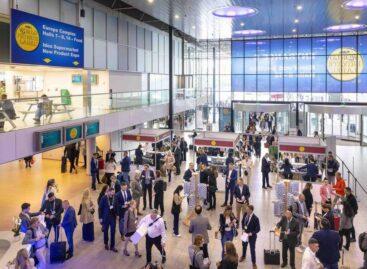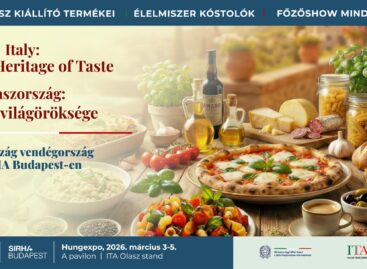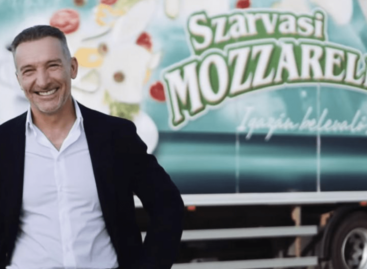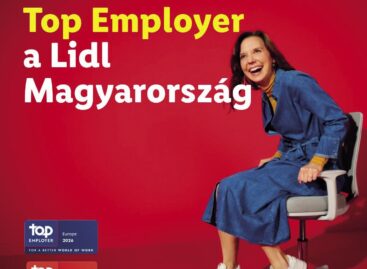What is the situation in the logistics industry? Interview with Aleksander Raczynski, cluster CEO of GEFCO.
What is the situation in the logistics industry? Interview with Aleksander Raczynski, cluster CEO of GEFCO. GEFCO, a global multimodal supply-chain expert and a leading provider of automotive logistics in Europe, has formed a new strategic cluster for its business in the Czech Republic, Slovakia and Hungary. Aleksander Raczynski, the former General Manager of GEFCO Czech Republic and Slovakia, assumed the leadership of this new unit on December 1.
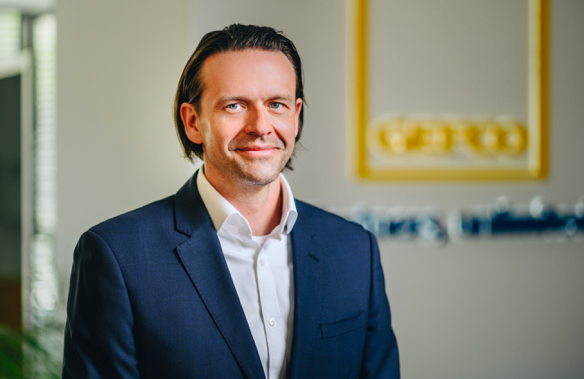
The Czech Republic-Slovakia cluster created by GEFCO three years ago, and the merger of Czech and Slovak management and strategy has proven successful. This is one of the reasons GEFCO decided to add Hungary on December.
On the occasion of the merger, we interviewed Alexsander about the GEFCO’s situation and plans in Hungary.
As a former GM of GEFCO Czech Republic and Slovakia, and now as the new CEO of the Czech, Slovak, and Hungarian cluster what is your first impression about the Hungarian market and clients?
Aleksander Raczynski:
For many years, GEFCO Hungary has always been a subsidiary of the GEFCO Group with its successes and very good team. Of course, with our experience in the automotive and other fields gained in the Czech Republic and Slovakia, we can further strengthen and support business development in Hungary. And, of course, the team in Hungary will also be involved in leading the larger geographical group. Two top managers from Hungary are now joining the group leading the three countries, which provides a very good basis and knowledge for further development.
Gefco as logistics giant is coming to Hungary with huge plans for development of the new services and activities. What are the results in 1st and 2nd month?
Aleksander Raczynski:
The first two months were successful for GEFCO Hungary. In some areas, we saw an increase in our activities, which is also related to a change in our approach to customers. Taking advantage of Slovak and Czech trade relations, we had some quick business acquisitions for Hungary as part of the cluster. So we have already experienced the advantages of the cluster in the results of GEFCO Hungary. But of course this will work vice versa, as we also have very good references in Hungary that we are trying to take advantage of in the Czech and Slovak markets, so we had a very good two months.
How involved are you? And how much do you focus on the operation of the company’s Hungarian department?
Aleksander Raczynski:
I am responsible for leading three countries where we have more than 1,500 employees and many other subsidiaries in the Czech Republic and Slovakia. Overall, the management structure is quite complex, so my workload is significant. But I know the clients well, I’m aware of what we’re doing, and I support the guys in everything. In addition, I have very good and experienced senior management who oversee all my activities with my daily interventions.
Gefco CZ and SK have successfull strategy of clients portfolio diversification- what is the strategy in Hungary? What developments has the company undergone since its establishment in Hungary in 2006?
Aleksander Raczynski:
The Hungarian market is quite similar to the Czech and Slovak markets. Historically, we have focused primarily on the automotive industry, but for many years we have not only developed our automotive services, but also provided logistics to companies in other areas such as pharmaceuticals, apparel, FMCG, electronics and other materials.
Diversification is very successful in the Czech Republic and Slovakia.
We are also characterized by diversification in Hungary, but here we want to strengthen the greater development of the non-automotive sector.
The Hungarian market is developing a lot in the car industry and in the parts suppliers, so of course we are further developing here, in addition to the non-automotive industry, thus keeping both directions, towards the non-automotive and other types of industries.
What is GEFCO Hungary’s objectives, business goals in short term, in 2021 and in mid-term?
Aleksander Raczynski:
In the short term, we want to strengthen the turnover of our subsidiaries with fast business results. And at the same time, we want to create synergies between the three countries with joint leadership.
Winning new, larger projects from the non-automotive sector, developing our warehousing activities in Hungary, working for different companies beyond the automotive world will take a year or two before the first tangible impact will be visible. Therefore, in the short term, we want to show with quick business results that it was a good decision for GEFCO to merge the three countries.
How did Brexit affect your company? Did it have an impact on Hungarian costumers?
Aleksander Raczynski:
We feared a decline in volume, some kind of slowdown in the UK economy, which will have an impact on our rather significant export and import volumes at GEFCO.
We sell a lot of trade lines between Britain and Europe, so we had real concerns about volume decline, which thankfully didn’t happen.
So the business is going as usual, the traffic is still active. Of course, it has a very positive effect on our customs and tax department.
The most significant influence of the last year is COVID-19 and its accelerated pressure to shorten supply chains. Do you perceive it in your segment?
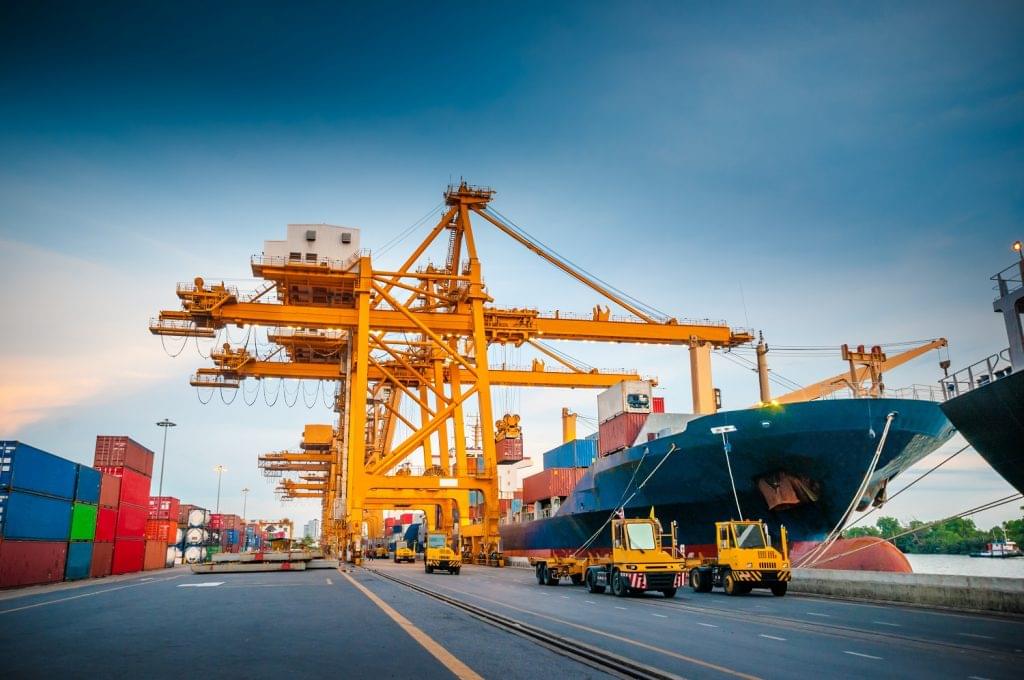
Container ship in the harbor in Asia ,
Aleksander Raczynski:
Of course, we are waiting for the end of this period, as covid has affected and is affecting everyone and all companies. At the same time, the positive side of this is perhaps that we all better appreciate and enjoy our work together.
In many ways, the work done at the time of closures is very challenging for our colleagues, as we notice disruptions in the supply chain.
At the same time, the quality of our teams in the three countries is very well demonstrated by the fact that we at GEFCO successfully survived the closures and handled the pandemic crisis very well and came out stronger.
We’ve survived, we went through, and we still feel the reduced performance, but the teams are very strong, and as soon as the covid gets under control, we’re ready to handle the changes.
You are promoting innovative integrated logistics – what is the biggest advantage for the B2B and B2C sector? Is it usable in both?
Aleksander Raczynski:
Our primary business model is based on the B2B sector, so we serve many clients in this area.
Innovation is what we want to pursue pragmatically, as the innovation built into our operations reduces the possibility of error and improves the quality of our operations.
And, of course, we are constantly striving to provide better service to our customers by incorporating artificial intelligence and robotics to support repetitive tasks. As a leader in the logistics industry, we have to be 4-5 steps ahead of others.
In recent years, logistics has become an added value of products, the last mile plays a decisive role in this – do you have innovative solutions for this area?
Aleksander Raczynski:
One specific example is Moveecar, a digital service platform that supports customer vehicle management throughout its lifecycle. The platform allows partners to access them quickly online to make their automotive business easier and provide them with a unique user experience.
Which trends in logistics do you consider the most important with regard to the next five years?
Aleksander Raczynski:
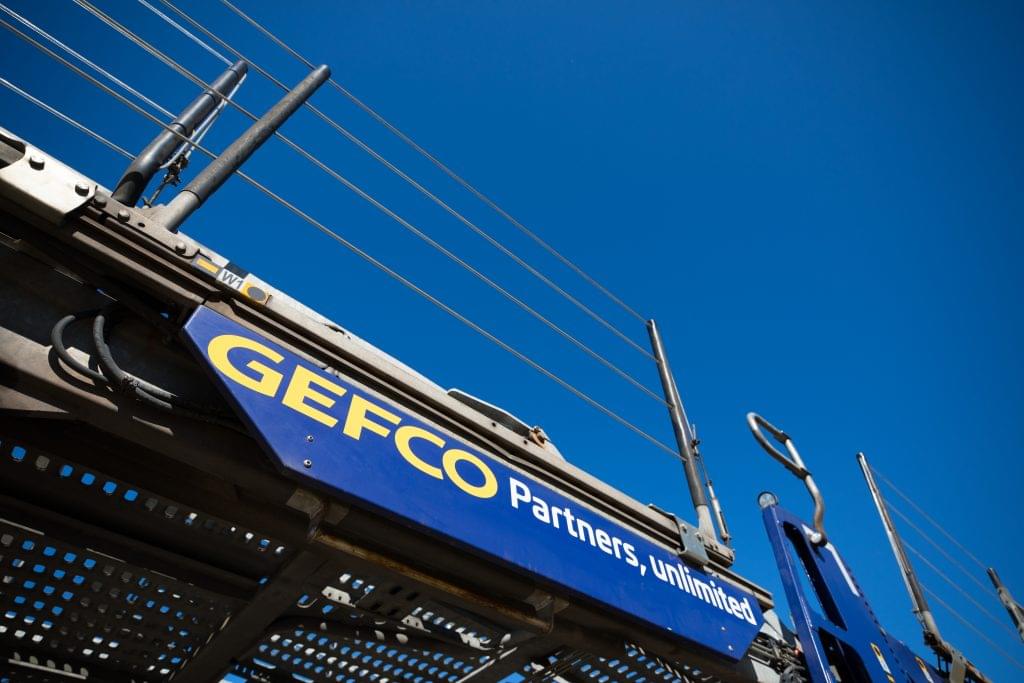
In the current situation, it is very difficult to predict the near future as well.
Globalization is a huge trend and will always remain a topic, but perhaps covid is slowing this pace a but in some area, or at least we are not evolving fast. I think manufacturers will have up to 2-3 sources to source parts in different parts of the world to diversify the manufacturing capabilities of the car or anything else.
We need to be very, very flexible, prepared for every situation, for every solution, even overnight, so flexibility can be one of the most important values. The possibility of a crisis will always be there in the logistics industry, so we must be ready to support manufacturers in always being prepared for unforeseen situations with the development of our innovations and IT systems. It is also important to change the way we think, and we must always keep in mind that there is nothing certain or a certain thing. Of course, the world is constantly evolving and robotics will become more and more widespread.
Do you perceive risk or opportunity in the emerging digital platforms? Do you use some or are you developing something of your own?
Aleksander Raczynski:
Of course, I see it as an opportunity, an opportunity that is related to and reinforces the physical processes that still exist. It is important how and where we apply them. A few years ago, we bought a platform called croma track at GEFCO to optimize processes and quantities to maintain smoothness and process.
So we are not afraid of change, we are even ready to launch more innovative solutions for the industry.
Thanks to innovative platforms, we can combine and increase our physical capacity to transport goods. And most importantly, our customers using these platforms can be sure that their goods are properly cleared through customs and arrive on time and qualitatively during transportation. In logistics, the presence of the GEFCO Group offers tremendous security and many benefits.
What is the structure of your orders today in terms of production logistics? Do you anticipate any changes in this distribution in the coming years?
Aleksander Raczynski:
The automotiv industrial logistics is one of the most difficult because you always have to deliver the parts at the right time, to the right place and in the right quantity. We already have more than 70 years of expertise and experience in this, which we can apply in other areas as well.
Therefore, leveraging our experience in the automotive industry, we will continue our strategy to enhance the diversity of our customer portfolio to serve more customers in areas such as FMCG, the apparel and electronics sectors.
(x)
Related news
The world of private labels is moving to Amsterdam again – interview with Peggy Davies, President of PLMA
🎧 Hallgasd a cikket: Lejátszás Szünet Folytatás Leállítás Nyelv: Auto…
Read more >Realising what has been planned
🎧 Hallgasd a cikket: Lejátszás Szünet Folytatás Leállítás Nyelv: Auto…
Read more >Related news
Italy is the guest country at the SIRHA Budapest 2026 trade fair
🎧 Hallgasd a cikket: Lejátszás Szünet Folytatás Leállítás Nyelv: Auto…
Read more >Renewal at Szarvasi Mozzarella – the company’s commercial activities have been strengthened under the leadership of Máté Besenczy
🎧 Hallgasd a cikket: Lejátszás Szünet Folytatás Leállítás Nyelv: Auto…
Read more >Lidl Magyarország wins Top Employer award once again
🎧 Hallgasd a cikket: Lejátszás Szünet Folytatás Leállítás Nyelv: Auto…
Read more >


